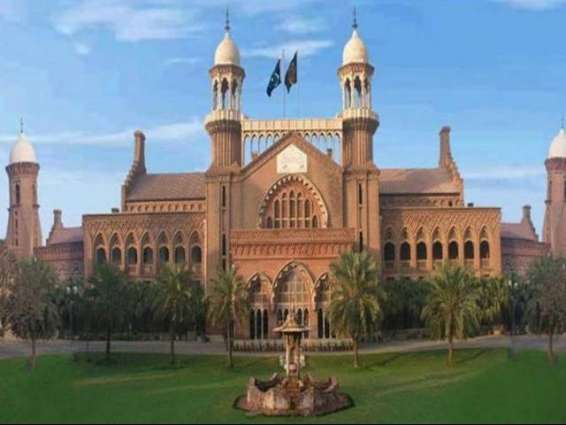The petitioner says that the government by introducing amendments in National Accountability Ordinance (NAO) is protecting corrupt practices and corruption.
MANSEHRA: (Urdu Point/Pakistan Point News-Dec 30th, 2019) The Lahore High Court’s registrar office on Monday did not entertain an application challenging amendments in National Accountability Ordinance (NAO) promulgated by Pakistan Tehreek-i-Insaaf (PTI) government through a presidential ordinance.
The registrar office objected to the petition saying that it cannot be held owing to winter vacations.
A day before, Foreign Minister Shah Mahmood Qureshi clarified that the ordinance was not aimed at providing National Reconciliation Ordinance (NRO), relief or protection to anyone. The changes in the law of anti-graft agency’s body were demanded by the Pakistan Peoples’ Party (PPP) and the Pakistan Muslim League-Nawaz (PML-N).
“Investors were not coming to make investment due to the law which is sufficient ground to say that it was not made to protect corruption,” said Shah Mahhmood Qureshi. Qureshi came hard upon the opposition saying that they claimed dysfunctional economic policies of the government and on the other hand put resistance to economic affairs at the same time.
“We just criticize and don’t study the subject in particular and it has become norm of our society,” he further said.
An application was also moved to the Supreme court against amendments in the NAB law. The petition filed with the top court pleaded that National Accountability (Amendment) Ordinance, 2019, should immediately be suspended. The petitioner said that the amendment was against Article 25 of the Constitution, and an attempt to protect the corruption of ministers and government officials.
According to the amendment, the NAB can now only take up cases involving corruption or corrupt practices exceeding an amount of Rs500 million, and no action will be launched against government employees in case of departmental deficiencies.
“Notwithstanding anything contained in this ordinance or any other law for the time being in force, no inquiry, investigation, arrest or proceedings against a government servant, under this ordinance, either as an accused or witness, shall be initiated or conducted by NAB without prior approval of the scrutiny committee,” said a new clause inserted in Section 33-F of the ordinance.
Another amendment barred the accountability watchdog from confiscating property of any public office holder without prior approval of the scrutiny committee.
According to the new changes in NAB law“Inquiries and investigations shall stand transferred to the respective authorities or departments which administer the relevant laws of taxation, levies and imposts in question.
“Trials shall stand transferred from the relevant accountability courts to the criminal courts which deal with offences under the respective laws pertaining to taxation, levies and imposts in question.”
In addition to that, another amendment required the NAB chairman to devise a “complaint redressal mechanism for attending complaints against NAB” and present a quarterly report on its performance to the federal government.
In a summary sent by the law ministry to the federal cabinet, the government claimed that the NAB was dealing a large number of inquiries and investigation including handling of mega corruption cases.
“Under the existing regime a number of inquiries have been initiated against the holders of public office and government servants on account of procedural lapses where no actual corruption is involved. This has enhanced NAB’s burden and has also affected working of the federal government.”
It further pointed that the NAB had assumed parallel jurisdiction and was inquiring into matters pertaining to taxation, imposition of levies and interference in the domain of taxation regulatory bodies.
“It is therefore felt necessary to define through the subject amendments the operational domain of NAB,” it added.
The anti-graft agency’s jurisdiction over matters relating to tax, stock exchange and IPOs has been curtailed. The Federal Bureau of Investigation, Securities and Exchange Commission of Pakistan (SECP) and building control authorities will be the sole authorities tasked to act on all such matters.




